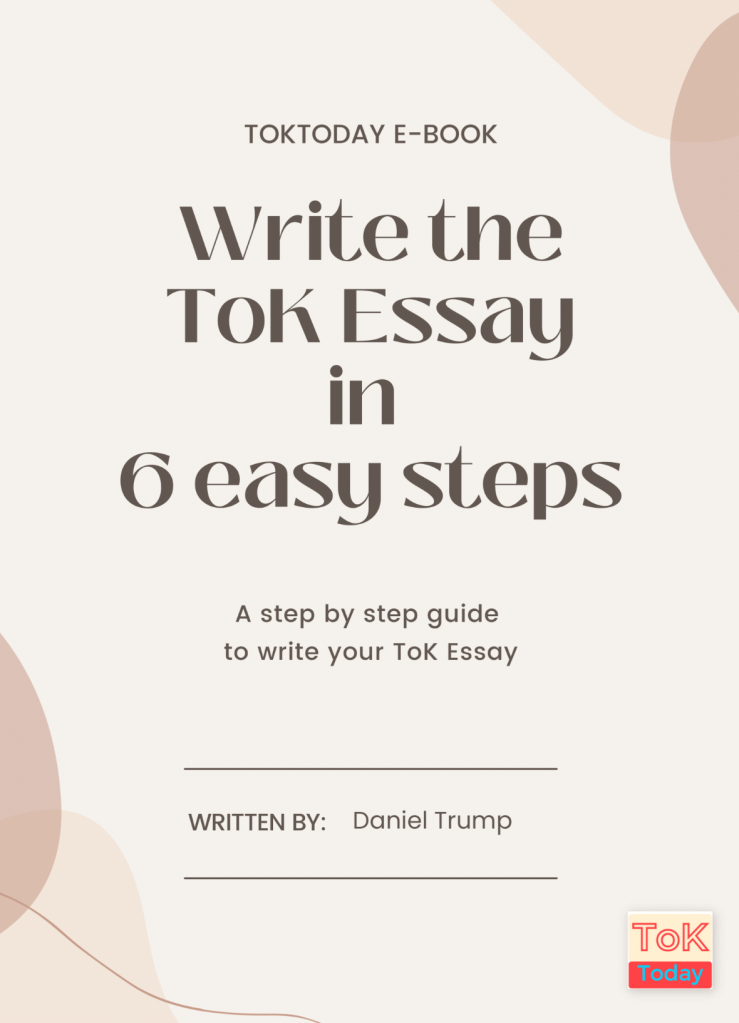The problem of Unsubstantiated Assertions in the ToK Essay
In the midst of essay-writing season for the May session schools, a prevalent issue emerges in Theory of Knowledge (ToK) essays: the problem of unsubstantiated assertions. These are claims or statements that lack the necessary backing of argument, evidence, or analysis, and they can lower your ToK score. Understanding what they are and how to avoid them is important for a successful ToK essay.
What Are Unsubstantiated Assertions?
An unsubstantiated assertion is essentially a claim that is made without proper support. This could be in the form of lacking evidence, lacking argument, or lacking analysis. For instance, consider these examples:
“Custodians of Knowledge are widely found throughout the world”
“Fresh ideas are produced faster in the modern world than in the past”
“Historians seek objective facts”
“Scientific knowledge is more reliable than artistic knowledge”
“All knowledge is difficult to transfer from its original context”
“Maths is based on highly specialised knowledge.”
These statements, as they stand, are presented as facts without any backing. In a ToK essay, this approach is problematic.
The Problem with Assertive Statements
Students often use these kinds of statements as introductory ideas or as links between different parts of their essay. They tend to open paragraphs with them, perhaps under the impression that a narrative style requires such assertive tones. This is a misconception. The ToK essay demands critical analysis and discussion, not mere narrative.
The Solution: Changing Assertions into Propositional Statements
The solution to this problem is relatively straightforward: transform these assertions into propositional statements. This means turning them into debatable points rather than presenting them as closed facts. Let's revisit our examples:
From “Custodians of Knowledge are widely found throughout the world” to “We can consider whether Custodians of knowledge are widely found.”
From “Fresh ideas are produced faster in the modern world than in the past” to “It could be argued that fresh ideas are now produced faster than they were in the past.”
From “Historians seek objective facts” to “It is often argued that Historians seek objective facts.”
From “Scientific knowledge is more reliable than artistic knowledge” to “On initial examination, scientific knowledge appears to be more reliable than artistic knowledge.”
From “All knowledge is difficult to transfer from its original context” to “The difficulty of transferring knowledge from its original context could be measured using the following criteria:”
From “Maths is based on highly specialised knowledge” to “Whether maths is based on highly specialised knowledge partly depends upon how we define specialised knowledge.”
The Benefits of Propositional Statements
By converting an unsubstantiated assertion into a propositional statement, not only do we eliminate the issue of being unsubstantiated, but we also introduce a knowledge argument. This is the essence of the ToK essay – a critical analysis of knowledge arguments.
Further Resources
For more detailed guidance on writing your ToK essay, consider resources like the ebook "How to Write the ToK Essay in 6 Easy Steps", or check the detailed guidance notes for each Prescribed title in this season (linked). Remember, the key to a successful ToK essay is not just in what you assert, but in how you support, debate, and analyse those assertions.
By recognising and transforming unsubstantiated assertions into propositional statements, you can significantly enhance the quality and critical depth of your Theory of Knowledge essays. Remember, it’s not just about what you know, but how you communicate and analyse that knowledge.
Daniel, Lisbon, Dec 23


